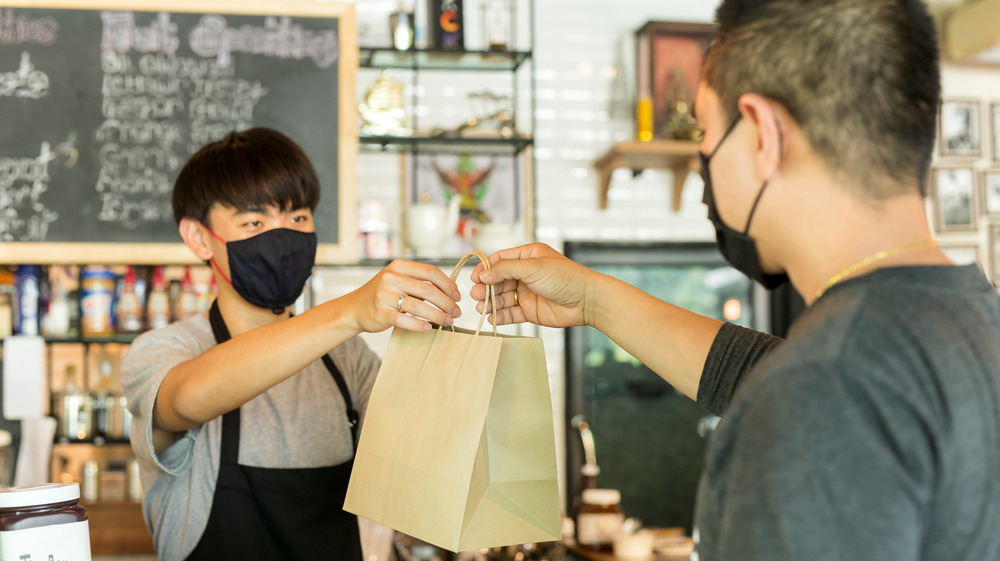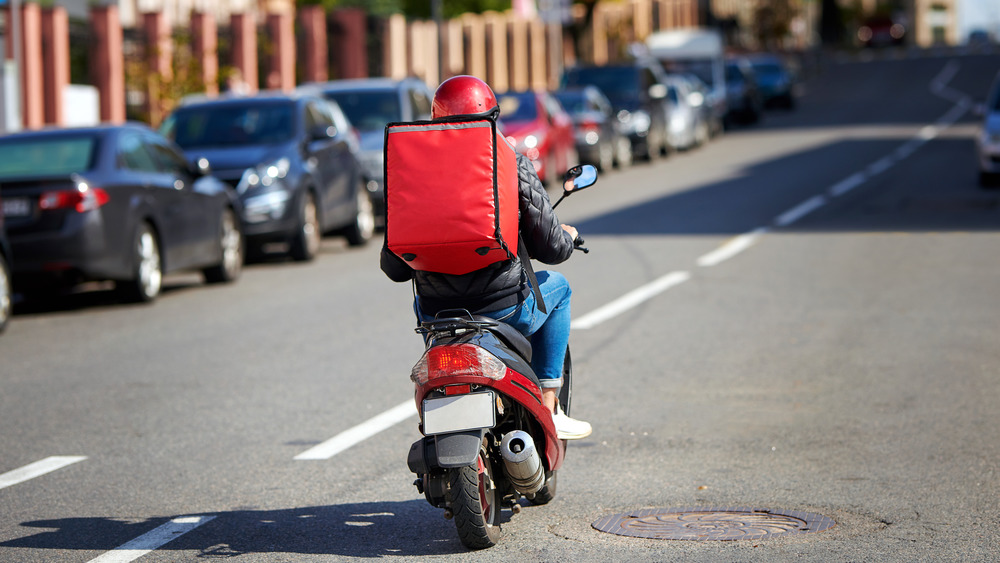The Takeout And Delivery Scam That's Killing Restaurants
As of December 2020, The National Restaurant Association was waving a red flag in front of Congress. A survey by the association indicated that, due to COVID-19, 87 percent of the United State's full-service restaurants were reporting sales losses of 36 percent. Seventeen percent of restaurants had closed down. Part of the problem is less business. But a Los Angeles Times investigation suggests that even those restaurants looking to survive COVID by increasing their takeout and delivery businesses may also be facing deathblows.
It's not lack of demand. Food delivery apps like DoorDash and GrubHub, as per Market Watch, are thriving. Many have more than doubled their sales since the beginning of the pandemic. They're doing so well that, according to MKM Partners analysts, many restaurants will soon have "no lifelines other than delivery platforms." No lifelines other than delivery platforms is a tenuous lifeline, at best. That's in part thanks to a significant increase in credit card fraud in the United States, a country that, according to CNBC, is already the "most card fraud-prone" in the world.
How scammers are taking advantage of takeout and delivery services
The Los Angeles Times investigation shed light on two kinds of consumer fraud that is threatening to shut down restaurants already struggling due to COVID. First, there are those who use fraudulent cards to place orders. When orders placed with fraudulent cards are disputed, restaurants often assume the losses. Second, scammers using delivery apps have started requesting refunds for food ordered, claiming restaurant error. In such cases, delivery apps often give customers the benefit of the doubt, making restaurants foot the bill for mistakes they haven't made.
It's scams like these that pushed Korean restaurant owner, Yoonjin Hwang to close. "We lost orders, time, precious ingredients, and the problems accumulated to the point where we just couldn't stay in business anymore," she told The Los Angeles Times, "We're losing money to these issues, despite all the evidence we provide." One customer ordered $728.76 worth of food from Hwang, using a fraudulent card. Visa made her foot the bill.
Meanwhile, Thai Bistro owner Fern Kaewtathip told the newspaper that she lost "a few thousand dollars [in 2020] to disputed charges," many stemming from customers who report never having received an order. For small restaurants, a few thousand dollars is a big deal. As Julie Fergerson, CEO of Merchant Risk Council pointed out to CNBC, "If a small one-shop business or a restaurant all of a sudden has a $10,000 loss, that could be the difference between making payroll and not making payroll for that company."

